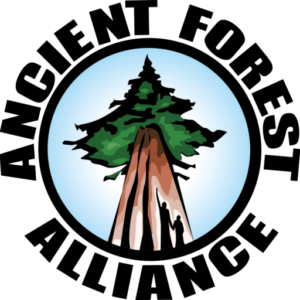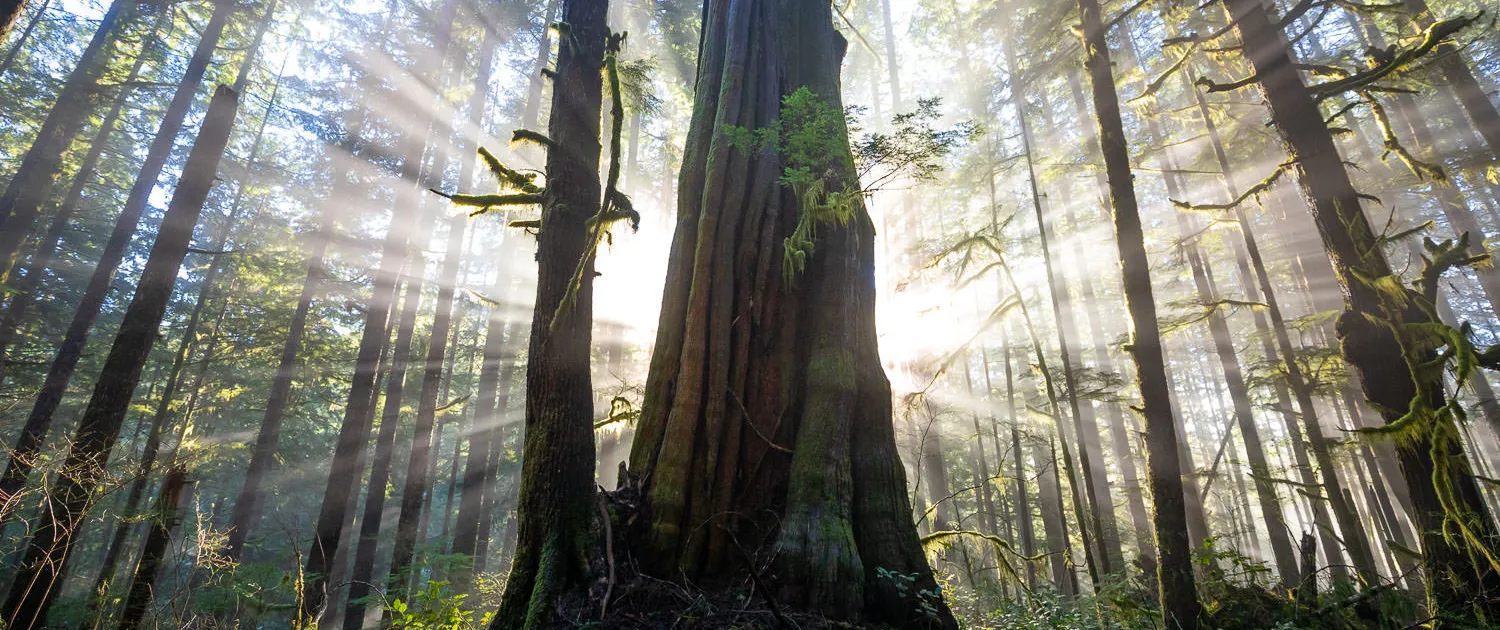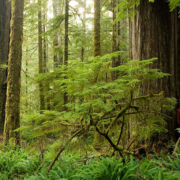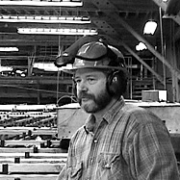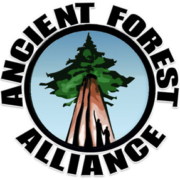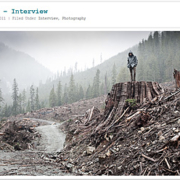Tweet
The Ancient Forest Alliance (AFA) reached its one year anniversary today, after being launched at a press conference in the old-growth forests of Francis King Regional Park in Victoria a year ago (see AFA news archives at https://16.52.162.165/recent-news/). Since then the non-profit environmental organization has become perhaps the fastest growing environmental group in BC, snowballing to 18,000 supporters through Facebook and by email, and garnering hundreds of news stories in the media on its campaigns.
“We’ve grown so fast, like a young spruce in the sunlight alongside a rainforest river, because we’ve had perfect growing conditions. Today, the vast majority of people on Vancouver Island and increasingly across BC, get it – that we need to protect BC’s endangered old-growth forests for wildlife, the climate, and tourism, while ensuring sustainable second-growth forestry and ending raw log exports to protect BC forestry jobs,” stated Ken Wu, the AFA’s executive director. “It’s a minority opinion to still say ‘let’s take it to the end of the resource and export the raw logs.’ 15 years ago, this was not necessarily the case.”
The currently leaderless BC Liberal and BC NDP parties presents an opportunity for change in BC politics, and as such the AFA will be pushing hard for strong old-growth forest and forestry jobs policies within both parties. As part of the organization’s “100,000 Strong for Ancient Forests and BC Forestry Jobs” public education and mobilization campaign, the AFA is launching a slideshow tour to dozens of communities throughout the province, starting in early February, to build public pressure on the parties. The BC Liberals currently contend that BC’s old-growth forests are not endangered and raw log exports should continue, while the NDP is calling for a provincial old-growth strategy (how much protection this would entail has not been specified yet) and increased restrictions on raw log exports. The Green Party is calling for a phase-out of old-growth logging and to ban raw log exports
Over the past year the AFA has organized a torrent of public hikes, slideshows, rallies, protests, petition drives, and letter-writing campaigns on Vancouver Island and in the Lower Mainland. On university campuses and in provincial swing ridings, it has also helped to empower and train new forest activists.
A particular strength of the organization is the spectacular nature photography of AFA campaigner and co-founder TJ Watt, whose photos of Vancouver Island’s old-growth trees and giant stumps are increasingly being featured in national and international media publications. See some of Watt’s magnificent photos at the AFA’s online photogallery at:
https://16.52.162.165/photos-media/
“By photographing BC’s largest trees and stumps, often in the hinterland along rough logging roads that few people traverse, we’ve been able to bring the ancient forests – and their clearcut devastation – to the homes of millions of people. We’ve sort of become the eyes and ears of the forest to alert people of what’s going on in one of the world’s most spectacular and endangered ecosystems,” states TJ Watt. “Many Canadians still don’t know that we have trees that can grow nearly twice the height of Niagara Falls with trunks as wide as a living room – and fewer realize they are still being cut down.”
The organization is perhaps best known for popularizing the “Avatar Grove”, an endangered stand of easily accessible, monumental old-growth redcedars and Douglas firs in close proximity to Port Renfrew. Within the Grove are several trees with spectacular, large burls growing out of their sides, including a burly cedar that has been dubbed “Canada’s Gnarliest Tree”. The campaign to save the Avatar Grove has garnered support from the Port Renfrew Chamber of Commerce, Sooke Regional Tourism Association, and from all levels of the region’s political representatives, including federal Liberal MP Keith Martin, provincial NDP MLA John Horgan, and Regional Director Mike Hicks. See photos at https://16.52.162.165/photos-media/
The Ancient Forest Alliance is calling on the BC government to:
– Undertake a Provincial Old-Growth Strategy that will inventory and protect the remaining old-growth forests in regions where they are scarce (eg’s. Vancouver Island, Southern Mainland Coast, Southern Interior, etc.)
– Ensure the sustainable logging of second-growth forests, which now constitute the majority of forest lands in southern BC.
– End the export of BC raw logs to foreign mills in order to ensure a guaranteed log supply for BC wood processing facilities.
– Assist in the retooling of coastal BC sawmills and the development of value-added facilities to handle second-growth logs.
– Undertake new land-use planning processes to protect endangered forests based on new First Nations land-use plans, ecosystem-based scientific assessments, and climate mitigation strategies through forest protection
75% of the ancient forests have been logged on Vancouver Island (see “Before” and “After” Maps at https://16.52.162.165/ancient-forests/before-after-old-growth-maps/), while less than 10% of our productive forests are in protected in parks and Old-Growth Management Areas, and the situation is similar throughout southern BC. Tens of thousands of hectares of ancient forests fall each year in BC.
Old-growth forests are important for species at risk, the climate, tourism, supplying clean water, and for many First Nations cultures.
“Right now, with the unprecedented situation of both the BC Liberals and NDP being simultaneously leaderless, we have a first rate opportunity to push both parties to commit to new, strong policies to protect BC’s endangered old-growth forests and forestry jobs. We’ll give public credit to any politicians who move their party forward on these issues but we’ll also point out those who are firmly committed to the backwards, destructive status quo,” states Ken Wu.
